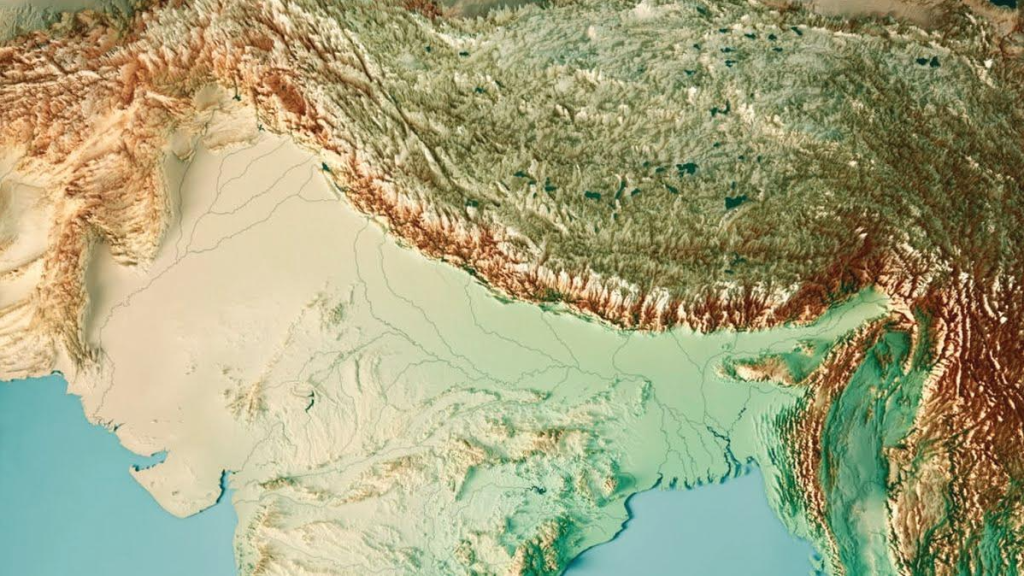India has always boasted of a unique socio-cultural milieu based on enormous diversity and a myriad of cultures, traditions, communities and ethnicities. How are students supposed to appreciate the novelty and distinctive characteristics of the composite history and social fabric of the country in which they are born and live? Do we really want to further perpetuate the kind of inaccurate and dangerous pseudo-history that everyone is being bombarded with through social media?
By Samira Verma
- The NCERT is calling the deletions made in the textbooks ‘rationalisation’ of the syllabus
- The unfortunate fact is that in today’s day and age, WhatsApp and other kinds of social media are the only avenues for “self” or “peer-learning”
- NCERT Director DP Saklani has denied any political motivation behind the deletions. though the deletions were done in an unacademic manner
- The deletions fly in the face of the most recent New Education Policy (NEP) that the government itself had rolled out
THE class IX NCERT History textbook entitled India and the Contemporary World includes a chapter on Nazism and the Rise of Hitler. This chapter, which is remarkably well-written and detailed, contains a section on ‘Youth in Nazi Germany’ which talks about how Hitler believed that a strong Nazi society could only be established by teaching school children Nazi ideology and by “controlling” them both inside and outside the school. Various methods were introduced by Hitler in order to achieve this aim. Schools were ‘cleansed’ and ‘purified’. ‘Good German’ children were put through a rigorous process of ideological training. But all of this began by the rewriting of school textbooks.
An important caveat at this point might be to say that no comparisons are being made. However, one can’t help but notice the strikingly eerie workings of an authoritarian state. In 2007, the current NCERT History textbooks (Themes in Indian History- Parts 1, 2 and 3) for class 12 were published. The process of writing and designing these textbooks was a novel endeavour, in that the entire rationale behind the textbooks was being changed; to the effect that even the layout, illustrations and colour scheme of the textbooks looked markedly different from the previous textbooks in circulation. In essence, these textbooks were based on a thematic exploration of History, rather than simply providing a chronological summary of events. Thus, some themes focused on politics and power dynamics, others looked at religious traditions and rituals, while yet others analysed how societies are organised. But, what made the books different from all its predecessors was that they were research-based, and they would be used to teach students about historical sources, reading and interpreting them, analysing multiple perspectives and understanding the workings of the historian’s craft. And most importantly, the books would teach students to question.

The NEP focuses on “critical thinking, finding out, asking questions, talking about things, and teaching based on analysis and whole-person learning.” In other words, it emphasises the development of skills for the 21st century, such as creativity, critical thinking, and problem-solving
The Chief Advisor for these books was Professor Neeladri Bhattacharya from the Centre for Historical Studies, Jawaharlal Nehru University; a professor whose classes used to have standing room only. Students who were not even studying History used to attend his classes in JNU. I was fortunate enough to have had him as a teacher. I was also fortunate to have been a part of the team that was writing and designing the NCERT textbooks under Prof Bhattacharya’s Advisorship. The names of teachers and professors who were a part of the textbook development committee read like a who’s who celebrity list to a young M Phil student like me. One of the advisors on the committee was Prof Kumkum Roy, India’s leading scholar on Early Indian History and Gender Studies and my supervisor for seven years. Other illustrious names included Professors Kunal Chakrabarti (also my supervisor), Muzaffar Alam, Najaf Haider, Ramachandra Guha, Rudrangshu Mukherjee, Sumit Sarkar, Uma Chakravarti, and Vijaya Ramaswamy among others. But today, I would not be able to face any of these teachers and mentors of mine. Because my country and democracy has failed them. The foreword of the book, penned by the Director of the NCERT, says that “given space, time and freedom, children generate new knowledge by engaging with the information passed on to them by adults.” This essentially means that as of now, we have failed our children too, because our political adults and leaders are in the process of controlling, repressing and sanitising the knowledge that we are supposed to pass down to the children.
CUT-AND-SLASH METHOD
The NCERT is calling the deletions made in the textbooks ‘rationalisation’ of the syllabus and the reasons for deleting some of the content are that the topics are either ‘overlapping’, ‘not relevant/outdated in the present context’, ‘difficult’, or ‘easily accessible to children and can be learned through self-learning or peer-learning’. Of course, whether Mughal history and the Partition of India are ‘outdated’, ‘difficult’ or so easy that children can ‘self-learn’ them, is anybody’s guess. On the other hand, periods when India saw a spate of prosperous and successful Muslim rulers or when the nation was divided along communal lines may be uncomfortable to many; thereby leading to an attempt to ‘rationalise’ it away. And despite the NCERT releasing a list of experts who were consulted for this ‘rationalisation’, not one of the actual historians and scholars who created and wrote the textbooks were asked to be part of the process. If the ‘rationalisation’ process was so above-ground, this seems like an odd oversight. The deletions were first justified on the basis of the Covid-19 pandemic, when the closure of schools and online learning required the volume of the syllabus to be lightened for the students. But why these deletions have continued in 2023 is another pertinent, albeit unanswered question.
Consider also, the effect that this cut-and-slash method of deletions will have on pedagogy. Are teachers supposed to jump from the national movement straight to the writing of the Constitution, leaving out any explanation of the Partition of India– the single most influential event that shapes relations between Hindus and Muslims and between India and Pakistan to this day? What if a student asks his/her teacher about the Taj Mahal or the Red Fort or the historical veracity of films such as Jodhaa Akbar? Are we also supposed to stop eating Mughlai food or stop wearing the salwar-kameez or completely remove Persian and Urdu words from our vocabulary? The nation wants to know! The biggest irony here is that despite deleting the history of the Partition, the deletions themselves seem to be the outcome of divisive and alienating politics. Otherwise why would the reference to Nathuram Godse being “the editor of an extremist Hindu newspaper” (from the chapter titled ‘Mahatma Gandhi and the Nationalist Movement’ in part-III of the class 12 history textbook) be removed? Gandhi himself tried his best to appease Mohammad Ali Jinnah and the Muslims till the very end of his life and endeavoured to keep the secularism of the country intact. It is indeed a tragic occurrence that the current ruling dispensation is not adhering to one of the most cherished ideals of the Father of the Nation.
DP Saklani, the Director of NCERT has denied any political motivation behind the deletions. However, this denial does nothing to counteract the fact that the deletions themselves have been done in a completely unacademic and incongruous manner. Not to mention the ideological leanings and politicised narratives of Indian history, culture and society being endorsed by the ruling party, which are all too evident everywhere. Secondly, India has always boasted of a unique socio-cultural milieu based on enormous diversity and a myriad of cultures, traditions, communities and ethnicities. How are students supposed to appreciate the novelty and distinctive characteristics of the composite history and social fabric of the country in which they are born and live? Do we really want to further perpetuate the kind of inaccurate and dangerous pseudo-history that everyone is being bombarded with through popular social media? The unfortunate fact is that in today’s day and age, WhatsApp and other kinds of social media are the only avenues for “self” or “peer-learning” that our children are exposed to. In the fast-approaching death of critical thinking, do we really want the youth of the country to be the latest victims? Children brought up on communal agendas will not and cannot do anything good for the country in the future.
LIST OF TOPICS REMOVED FROM CLASS 7-12 SYLLABI
Class 12
Themes in Indian History—Part II:
- Kings and Chronicles; the Mughal Courts (full chapter)
- India: People and Economy:
- Migration: Types, Causes and Consequences (full chapter)
- Human Development (full chapter)
Social Change and Development in India:
- The Story of Indian Democracy (Renamed as ‘The Constitution and Social Change’) (selected sections)
- Social Movements (selected sections)
Indian Society:
- Patterns of Social Inequality and Exclusion (selected sections)
- The Challenges of Cultural Diversity (selected sections)
Politics in India Since Independence:
- The Crisis of Democratic Order (selected sections)
- Recent Developments in Indian Politics (selected sections)
Themes in Indian History—Part III:
Understanding Partition: Politics, Memories, Experiences (full chapter)
Class 11
Indian Economic Development:
Poverty (full chapter)
Themes in World History:
- The Central Islamic Lands (full chapter)
- Confrontation of Cultures (full chapter)
Political Theory:
- Peace (full chapter)
- Development (full chapter)
Class 10
Democratic Politics-II:
- Democracy and Diversity (full chapter)
- Gender, Religion and Caste (selected sections)
- Popular Struggles and Movements (full chapter)
- Challenges to Democracy (full chapter)
Class 8
Social and Political Life-I:
- The Indian Constitution (selected sections)
- Understanding Marginalization (selected sections)
- Confronting Marginalization (selected sections)
Our Pasts-III:
India After Independence (full chapter)
Class 7
Our Pasts-I:
- The Delhi Sultans (selected sections)
- The Mughal Empire (selected sections)
Social and Political Life-I:
Struggle for Equality (full chapter)
PROCESS OF HOMOGENISATION
When I was a student of History at the University of Delhi (DU) for three years and then at Jawaharlal Nehru University (JNU) for nine years, one of the first things my teachers and all those distinguished historians taught me was to never think in terms of homogeneity. Right from the structure of society, religious and cultural traditions to even the composition of castes and communities, the one defining feature of Indian history is its heterogeneous character. However, this move by the NCERT seems to be an exercise in homogenising Indian history, an exercise in “whitewashing with vengeance”, to use the Opposition’s phrase. According to an article published by the India Today Education Desk (April 15, 2023), while “the NCERT has acknowledged the possibility of oversight regarding the omissions, it has declined to reverse the deletions”. But, who is going to pay the price for this ‘oversight’, one wonders.
The official website of the NCERT refers to itself as an ‘autonomous organisation set up in 1961 by the Government of India to assist and advise the Central and State Governments on policies and programmes for qualitative improvement in school education.’ Unfortunately, all the operative words in this descriptive statement now stand null and void. The NCERT is supposed to be an autonomous body, one that is not under the sway of the government, and it is instead supposed to advise the governments on improvements in education. But the deletions are too prejudiced, too politically motivated to be counted either as good advice or as an improvement in education. Furthermore, the deletions fly in the face of the most recent New Education Policy (NEP) that the government itself had rolled out. It is not possible to discuss the NEP here in its entirety, but just two of the key highlights of the policy should suffice:
- The NEP focuses on “critical thinking, finding out, asking questions, talking about things, and teaching based on analysis and whole-person learning.” In other words, it emphasises the development of skills for the 21st century, such as creativity, critical thinking, and problem-solving.
- Another key goal of the New Education Policy is to transform India into a global knowledge superpower by promoting research and innovation, improving education quality, and expanding access to education for all.
The current history textbooks (without the deletions) are perfectly designed for achieving the goals mentioned above. However, things such as critical thinking, analysis and ‘asking questions’ are exactly what the selective deletions seek to repress. Just as Indian society is not and never has been equivalent to ‘Hindu society’,

the Mughal rulers who followed Islam as their religion were not ‘looters’ and ‘invaders’. Indian history cannot simplistically be divided into the three broad categories of Hindu period, Muslim period and British period.
We cannot hide or wish the Partition away. We cannot teach our children to further marginalise the marginalised castes and communities. Gender history is not an afterthought. The discrimination, exploitation and oppression that has always been part of society and hence of history cannot be cloaked under a veil of fictitious social harmony. Regional diversity is not just something that foreign visitors who come to India marvel at. The history of India is the history of gender, caste and class. And the sooner we realise that, the better.
These textbooks were based on a thematic exploration of History, rather than simply providing a chronological summary of events. Thus, some themes focused on politics and power dynamics, others looked at religious traditions and rituals, while yet others analysed how societies are organised
A perfect example of what is these days called ‘WhatsApp University’ and the social media brand of history is when Bharatiya Janata Party leader Kapil Mishra wrote on Twitter, “It is a great decision to remove false history of Mughals from NCERT. Thieves, pickpockets and two-penny road raiders were called the Mughal Sultanate and the emperor of India. Akbar, Babar, Shahjahan, Aurangzeb belong not in the history books but in the dustbin.” There is nothing left to say. The author, a Doctorate in ‘false’ and ‘dustbin’ history, retreats in shame.
